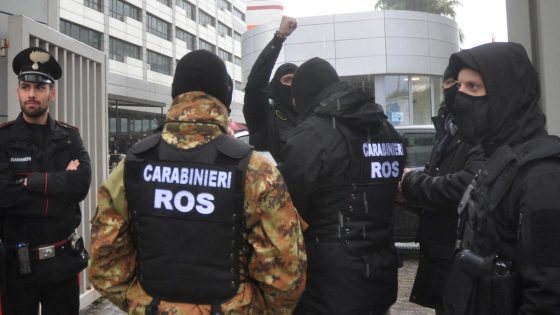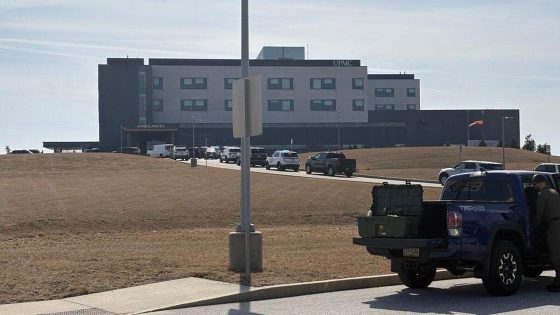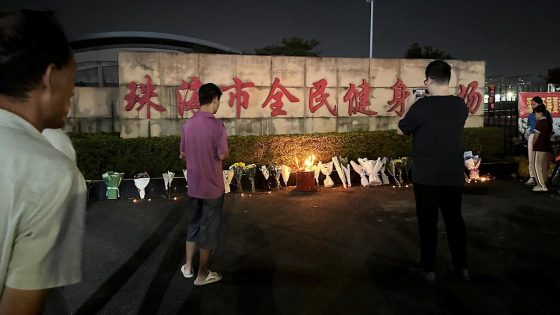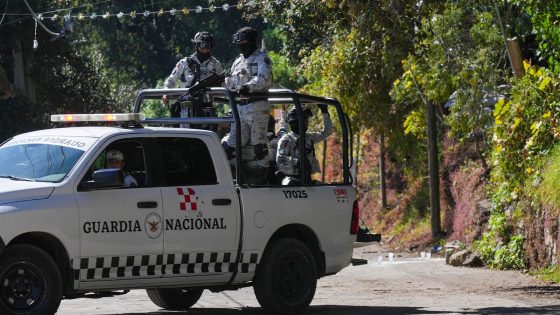In a dramatic sweep across Palermo, Italian police arrested nearly 150 individuals on a Tuesday morning in what authorities describe as the most significant operation against the Sicilian mafia in decades. The early raids, where over 1,200 officers fanned out to carry out coordinated strikes, focused on dismantling the Cosa Nostra clans that still exert considerable influence over the capital of Sicily.
- Major anti-mafia operation arrests nearly 150.
- Cosa Nostra involved in organized crime activities.
- Sicilian mafia still exerts significant control.
- Mafia uses encrypted communication methods.
- Young people still drawn to mafia lifestyle.
- Mafia profits exceed three billion euros annually.
The operation followed a two-year investigation that unveiled a troubling veil of organized crime that continues to control daily life in Palermo. Police disclosed that warrants were issued for 183 suspects for a range of serious offenses, including attempted murder, extortion, drug trafficking, and illegal gambling. Among those apprehended, 36 were already in custody prior to the raids. This level of mobilization recalls the comprehensive law enforcement efforts that have been necessary since the violent reign of the mafia peaked in the late 20th century.
Prime Minister Giorgia Meloni condemned organized crime’s persistent grip on society, stating, “This operation confirms the state’s constant commitment to the fight against organized crime.” Meanwhile, Palermo’s Mayor Roberto Lagalla hailed the arrests as a “historic blow to the mafia,” highlighting the operation’s implications for the ongoing battle against criminal networks deeply rooted in Sicilian society.
As investigators delved into the operation’s contexts, they revealed insights into the mafia’s evolving strategies. While the Cosa Nostra might be overshadowed by other criminal organizations, such as the more powerful ‘Ndrangheta, it continues to thrive, relying on sophisticated methods of communications and coordination through encrypted smartphones to maintain its operations. Despite its reduced status, the mafia still recruits young individuals eager to embrace its illicit way of life, perpetuating a cycle of crime that communities have long struggled to break.
The investigation into the mafia’s activities offers a glimpse into the troubling realities faced by local businesses, as the mafia remains relentless in demanding “pizzo,” or protection money. One troubling case described by police involved a clan controlling mussel distribution to local restaurants, demonstrating the far-reaching tentacles of mafia control over even seemingly mundane aspects of daily life.
While much of the mafia’s operation has shifted towards more covert methods to evade attention, evidence of violence remains. Authorities report discovering weapons during the raids and documented cases of brutal beatings, suggesting the mafia’s brutal tactics are still very much in play. Alarming reports point to a culture where disputes are settled quietly, avoiding the spotlight while violence simmers beneath the surface.
Historically, the Cosa Nostra’s notoriety escalated in the 1990s following the assassinations of anti-mafia judges Giovanni Falcone and Paolo Borsellino. These heinous acts sparked a wakeup call that led to relentless state crackdowns. The culmination of enduring efforts against organized crime is now threatening the traditional balance of power within Italy’s mafia networks.
As the dust from the operation settles, questions linger about the mafia’s future and the true extent of its influence. The sheer scale of the arrests raises hopes for significant change, yet the reality of crime in Italy reminds us that dismantling these organizations is a monumental challenge. The recent uncovering of a network of informants, including a clerk from the Palermo prosecutor’s office arrested for leaking documents, adds layers to the investigation, highlighting the complex interplay between crime and authority.
While the apprehended individuals face legal proceedings, the future of the Cosa Nostra remains uncertain. The rich history of organized crime in Italy unfolds amid new investigations, public sentiment against criminality, and a determined legal apparatus bent on dismantling the power structures that have long terrorized communities. The operation serves as both a significant triumph against mafia influence and a reminder of the persistent shadows cast by organized crime, as Italy grapples with the question of how deeply these roots extend into the fabric of society.

































